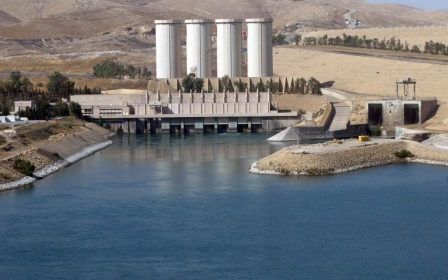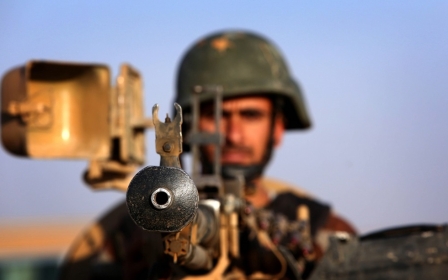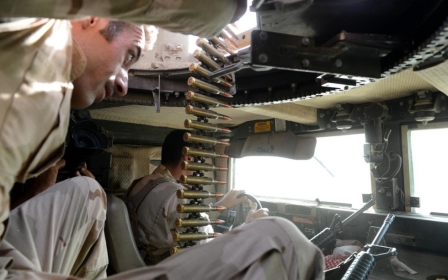Maliki’s departure opens up opportunities, challenges

The resignation of Iraqi prime minister Nuri al-Maliki last Thursday, following mounting domestic and international pressure, provides hope for a resolution to the country's present crisis. He was a hated figure among Iraqi Sunnis, who had been protesting against his eight-year rule since late 2012.
He dealt with accusations of authoritarianism and of disenfranchising their community with violence against protesters and a general crackdown on dissent. The resulting resentment led to Sunni forces with no jihadist outlook fighting alongside the Islamic State (IS) against the government. Maliki unwittingly created an unlikely alliance against him that has enabled the rapid territorial expansion of the IS since June.
His departure has already led to developments that could pose a serious threat to the jihadists. The morning after his announcement that he was stepping down, members of more than 25 prominent Sunni tribes took up arms against IS in Anbar province, with the backing of Iraqi security forces. Anbar was the birthplace of the Sunni uprising against al-Qaeda several years earlier.
That same day, Sunni leaders who are part of the revolt against Maliki stated their conditional willingness to join a new government and fight the IS. Even if this does not materialise, the fact that they have publicly expressed their willingness to take on the IS will cause tensions between them.
Regardless of the extent of present foreign involvement in Iraq, ultimately the demise of the IS may depend on whether there is another full-blown Sunni "awakening", as there was against al-Qaeda. This would bolster Syrian rebels who have been at war with IS since the beginning of the year, at a cost of thousands of lives.
More broadly, Maliki's successor, Haider al-Abadi, has been endorsed by the major players in Iraq: the country's top Shiite cleric Ali al-Sistani, and Iran, Saudi Arabia and the US. Prominent Iraqi Shiite cleric Moqtada Sadr is also likely to welcome the succession given his hostility towards Maliki.
This may usher a degree of coordination between these various players in the fight against the IS because it is viewed as a threat by all of them. Maliki's departure may also lead to a rapprochement between Baghdad and Iraq's Kurds, whose leaders have openly blamed him for the present crisis.
However, there are still many potential pitfalls. Abadi has to form a new government, which in Iraq's fractious parliament is never a straightforward task. That government has to be inclusive, and beyond that, it has to put an end to the disenfranchisement of the Sunnis. This has been a problem since the US invasion, not just under Maliki. It is not simply a reformed government they seek, but a reformed system.
A list of demands has been drawn up to be sent to Abadi. The full list has not yet been made public, but among the reported conditions are a suspension of military operations by Baghdad and Shiite militias, on which the government has been reliant.
This is a reasonable request, not least because their actions have aggravated sectarianism, caused considerable civilian suffering, and thereby helped IS recruitment. However, it is unclear whether Abadi will be able to reign in the various militias.
The government has committed "serious abuses" against Sunnis, including "mass executions" of prisoners, and "kidnappings and summary executions by security forces and government-backed Shia militias", according to Human Rights Watch, adding that both the militias and the IS "are apparently using children under 18 in their forces". Another HRW report said government airstrikes "are wreaking an awful toll" on civilians.
The demands also include releasing Sunni prisoners, many of them held without charge and in appalling conditions. It is not yet known how many are sought for release, or how many the government would let go (there are thousands in jail).
Baghdad would likely want to free just enough to appease Sunnis, without appearing weak. That is a very tricky balancing act, particularly regarding those whom the government considers as having blood on their hands.
Sunnis also want jobs created in their areas. While this is vital to dissuading the disaffected from resorting to arms, it will be difficult to achieve given the generally poor state of the economy.
There is cynicism over whether Abadi is willing, let alone able, to carry out the necessary reforms. Sceptics point to his being from the same political party as Maliki, so any differences may be in style rather than substance. It is too soon to tell, particularly as Abadi is a relative unknown.
In any case, the crisis in Iraq is influenced by many other internal and external factors, any one of which could derail a resolution. These include the upcoming Kurdish referendum on independence (which is opposed by Baghdad and neighbouring countries), Syria's civil war, Iran's relations with the US and Saudi Arabia, and the Kurds' dispute with Baghdad over unilateral oil sales, to name but a few issues of regional significance and involvement.
The odds seem to be stacked against a lasting, positive outcome, but there is hope in the fact that Sunni and Shiite leaders are expressing their desire for one following Maliki's departure. That may not sound like much, but in present-day Iraq - and the wider Middle East - it is an important start.
- Sharif Nashashibi is an award-winning journalist and analyst on Arab affairs. He is a regular contributor to Al Arabiya News, Al Jazeera English, The National, and The Middle East magazine. In 2008, he received an award from the International Media Council "for both facilitating and producing consistently balanced reporting" on the Middle East.
The views expressed in this article belong to the author and do not necessarily reflect the editorial policy of Middle East Eye.
Photo credit: Pro-Maliki supporters protest in Iraq on August 9 (AA)
New MEE newsletter: Jerusalem Dispatch
Sign up to get the latest insights and analysis on Israel-Palestine, alongside Turkey Unpacked and other MEE newsletters
Middle East Eye delivers independent and unrivalled coverage and analysis of the Middle East, North Africa and beyond. To learn more about republishing this content and the associated fees, please fill out this form. More about MEE can be found here.





